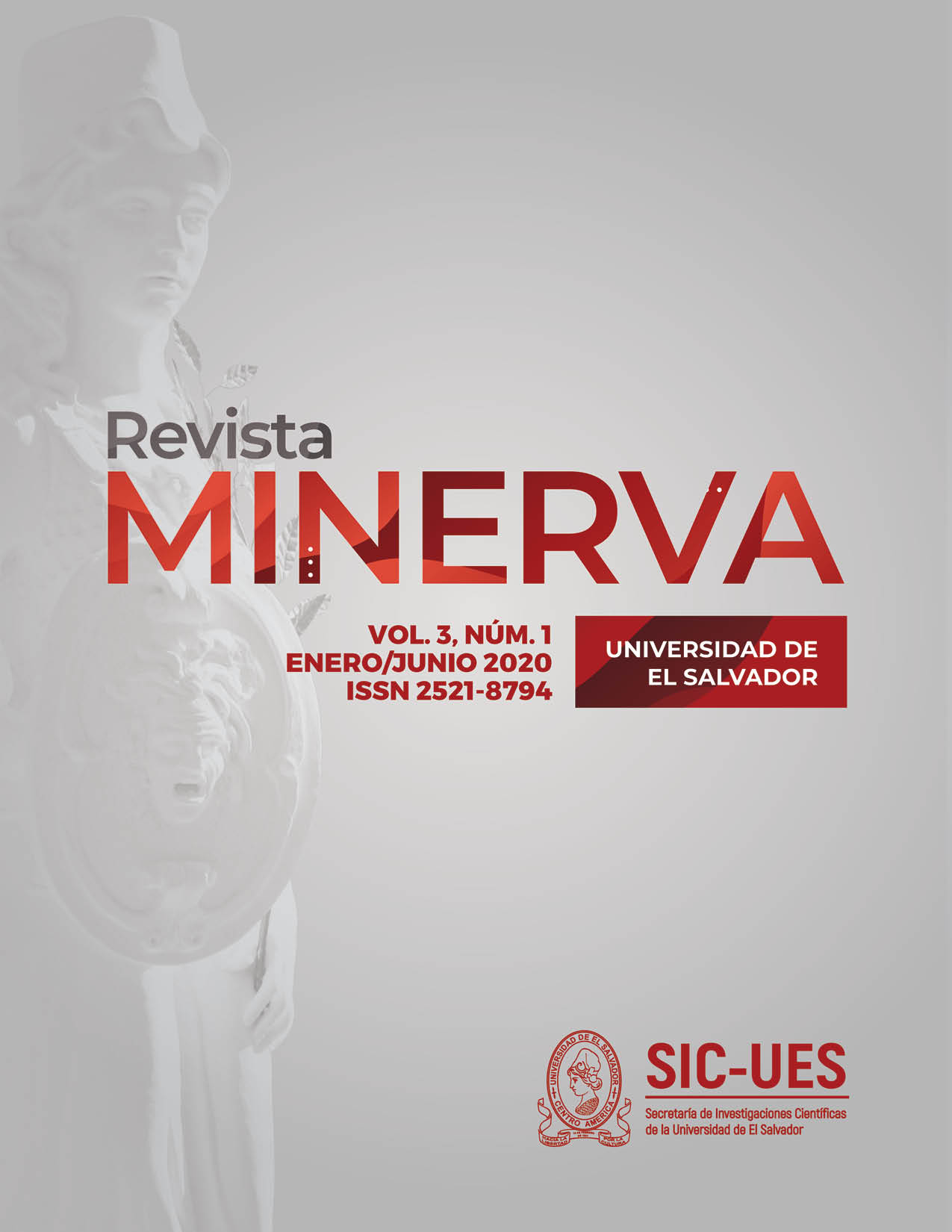Race and nation: the genealogy of the national community in Francisco Gavidia’s “Jupiter”
DOI:
https://doi.org/10.5377/revminerva.v3i1.12474Keywords:
nation, coloniality, castes, minority of ageAbstract
The last decades of the 19th century marked the beginning of the invention process of the Salvadoran nation. The present study constitutes a reflection, from the decolonial approach, on the structuring role of coloniality in one of the most lasting stories of the nation written in that period: the drama Jupiter (1889) by Francisco Gavidia, in which the author recreates the events of the so-called “first cry of independence”. The analysis wants to make a specific contribution to the understanding of Gavidia’s work: he tries to expose the centrality of the notion of race in one of his canonized stories as a producer of meaning about the nation. The thesis developed is that, from the moral and intellectual devaluation of the castes, Gavidia minimized his contribution to the formation of the Salvadoran nation and placed them in a subaltern place as the only possible one. The resulting community ideal has a strong Europeanizing stamp and excludes any other type of ethnic or cultural contribution from non-European or non-Europeanized subjects.
183
Downloads
Published
How to Cite
Issue
Section
License

This work is licensed under a Creative Commons Attribution-NonCommercial-NoDerivatives 4.0 International License.

